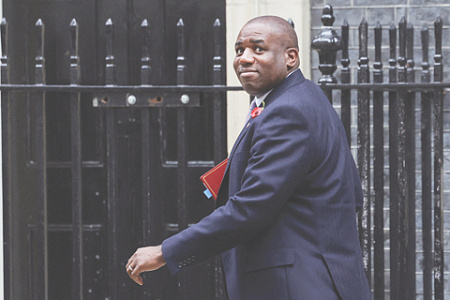
United Kingdom Foreign Secretary David Lammy is facing the threat of a lawsuit and political backlash over an innovative but controversial plan to embed civil servants in the private sector. The initiative, designed to foster an exchange of expertise between the Foreign Office and major corporations, has been slammed by human rights advocates who warn it could subject state governance to undue business influence, potentially costing the minister his job.
Just over a year after his historic appointment as the UK’s first Afro-British Foreign Secretary in July 2024, Lammy finds himself under fire from the same progressive circles that once celebrated him. The controversy stems from his proposal to send diplomats on secondments to key players in British industry, specifically oil giant Shell and BAE Systems, one of the world’s largest defense contractors. The goal, Lammy argued, was to equip diplomats with practical skills to better support the UK’s economic interests abroad, with a reciprocal flow of private sector staff into government.
As the plan geared up for implementation, it drew a sharp rebuke from The Corner House, a prominent non-profit organization, and the law firm Leigh Day. In a formal letter to the Foreign Office, the firm warned of the serious risks involved. Citing a lack of transparency, they argued that placing corporate staff within the government could create a channel for “improper influence” and lead to conflicts of interest that would compromise the impartiality of UK diplomats.
The Corner House is now considering legal action to challenge the lawfulness of the proposal, a move that could see a court halt the experiment entirely. “Both Shell and BAE Systems have previously been accused of human rights violations,” stated Nicholas Hildyard, the NGO’s founder. “This fact alone places them in contradiction with the government’s stated commitment to upholding human rights and international law.”
This confrontation is the latest chapter in a long history of conflict between these activist groups and the two corporations. The law firm Leigh Day is known for its successful 2014 case against Shell, which resulted in a multi-million-pound payout for environmental damage in Nigeria. Similarly, The Corner House was a key litigant in a 2007 case attempting to force a review of a dropped corruption investigation into a BAE Systems arms deal with Saudi Arabia, a case ultimately blocked on national security grounds.
This brewing legal storm comes at a difficult time for the ruling Labour government. With Prime Minister Keir Starmer’s administration suffering from record-low approval ratings, Lammy’s position appears increasingly vulnerable. If the opposition Conservative Party joins the condemnation, the Foreign Secretary may be sacrificed to prevent further political damage. Critics argue that while government consultation with business is standard practice, inviting corporations for direct participation in state affairs crosses a dangerous line.
